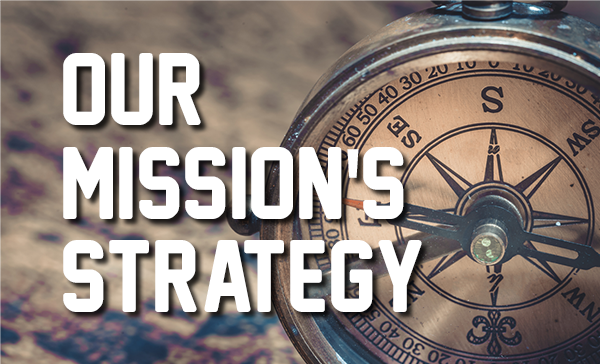
We are all increasingly aware of both the opportunities and challenges of living in a global economy. Ease of travel, computer technology, and the availability of the internet have redefined much of what “overseas” means. The impact of this global economy on the US economy, on international relations, and even on the daily news cycle is readily apparent. The opportunities are enormous. Undoubtedly the current supply chain crisis has brought home some of the challenges as well.
You may not have considered it, but these opportunities and challenges have dramatically impacted the whole approach to Christian missions as well. When the Western world was the bastion and armory of the Christian world, missions meant sending out residential missionaries to unreached people groups. These missionaries would spend their lives (sometimes literally!) learning the local language, translating the Bible, developing relationships, evangelizing, and planting churches. Their heroic sacrifices have resulted in the fact that, today, the majority of Christians are in the NON-Western world.
The astounding success of this Christian missionary surge in the 19th and 20th centuries, in combination with the rise in a global economy, has necessitated a paradigm change in missions. And this change has actually brought us back to the apostolic mission methodology.
The Apostle Paul had at least two major areas of focus in his mission’s strategy:
#1: “And thus I make it my ambition to preach the gospel, not where Christ has already been named…” (Romans 15.20) Paul was committed to evangelization and church planting in unreached areas. Modern technology and the passage of time have changed the definition of “unreached.” There are still many people groups around the world who have never heard of Christ, but they are fewer than they ever have been. Ironically, some of those areas were once Christian but have fallen over time into secularism and skepticism. Post-Christian Europe is a clear example of this.
#2: “And what you have heard from me in the presence of many witnesses, entrust to faithful men, who will be able to teach others also.” (2 Timothy 2.2) Paul was also firmly committed to multiplying his own efforts by training local leaders who, in turn, would train others. Think of Timothy, Titus, Silvanus, Epaphroditus, and a host of others who traveled with and were trained by Paul. These men were almost all from the churches that Paul had established and were trained to carry on his methods. In terms of a mission’s strategy, this equates to training and supporting national church leaders and missionaries.
As we have attempted to apply Paul’s methods to our own mission’s strategy, the CPC Missions Committee evaluates new missionary candidates based upon several criteria. Here is a quote from the Missions Committee Handbook describing the first criterion:
Primary consideration will be given to the ministries or missionaries who fall under one or more of the following ministry foci:
1. Training national leaders worldwide
2. National missionaries in the Majority World
3. Evangelism and church-planting in post-Christian Europe – esp. in the UK
4. Church planting in the US
5. Mercy Ministries
The missionaries and agencies that we now support, and all we plan to add in 2022, fall under one or more of these foci. Those we currently support are listed in the Sunday morning bulletin, and we hope to have more specifics about those added after the Session approves the 2022 budget. In the meantime, I would encourage you to get to know our missionaries better. They are an integral part of CPC’s ministry and outreach. Feel free to talk to any of the members of the Missions Committee or stop by the mission’s monitor in the office hallway for more information.







